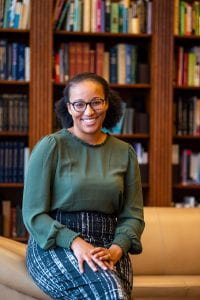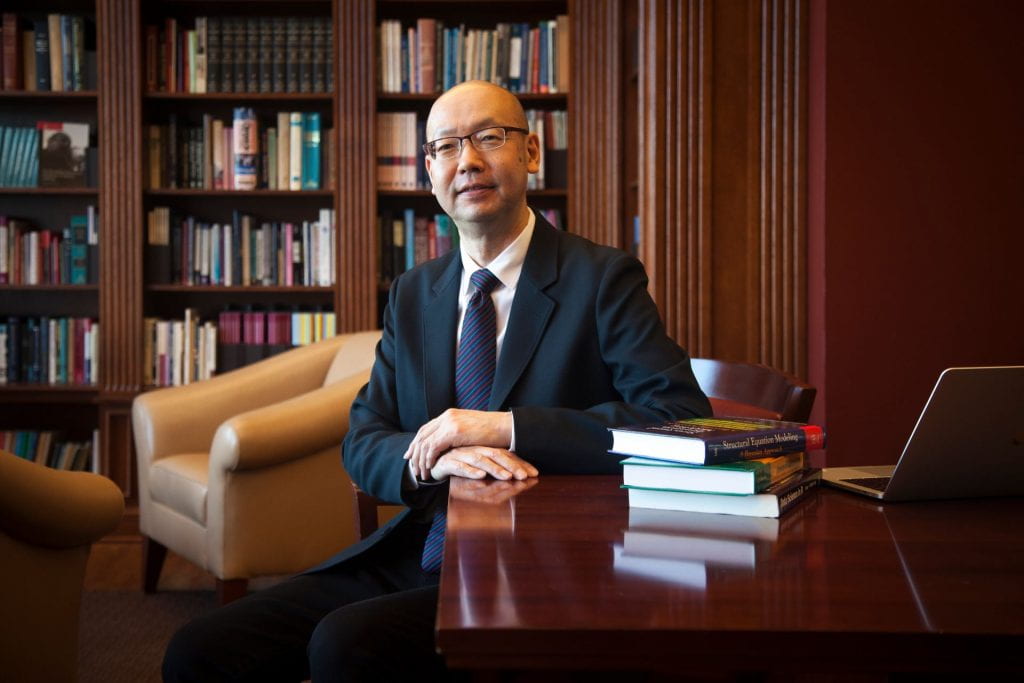DALLAS (SMU) – College students like Mary Cabanas are in the pipeline to relieve the impact of widespread teacher resignations threatening U.S. public education. But what sets Cabanas apart is that she will enter a tough profession with her eyes wide open, thanks to determination, mentorship and training from SMU’s Simmons School of Education and Human Development.
“Ongoing problems in education have been magnified by the pandemic and the political division in the U.S.,” says Stephanie Knight, Simmons School dean. “And previous approaches to solving the teacher shortage, like alternative certifications, haven’t worked.”
Teachers need to develop knowledge and skills in the classroom early in their teacher education, Knight says. They also need higher pay and to be treated like professionals, which includes the opportunity to be collaborative and creative, Knight says.

Job 23-255
Cabanas’ trajectory as an education student may be a model for other students. She has taken collaboration with other future teachers into her own hands, forming SMU’s first student organization for education majors. But instead of taking field trips and hosting guest speakers, each week the Hilltop Educators meet to discuss controversial subjects in education, like book bans and school shootings.
The senior mathematics and education major has been planning to become a teacher since 8th grade. She worked in a classroom early, observing and even teaching a pre-K class as a future teacher intern in high school. At SMU, she is a recipient of the Noyce Teacher Scholarship, which commits her to teach math at a high-need school after graduation in exchange for a scholarship funded by the National Science Foundation.
Mentorship by Noyce Scholar faculty sponsors has opened other doors for Cabanas. On Saturday mornings, she can be found on campus assisting in an education research project comparing the effectiveness of using iPads vs. virtual reality to teach geometry. She also spent a summer researching best practices in math education by watching videos of math teachers and coding their teaching practices. In addition, Cabanas helped analyze the effectiveness of demonstrating to students how workers use math in their careers.
“I’ll take what I’ve learned from research into my classroom,” Cabanas says.
Participating in education research gives Noyce Scholars the opportunity to be part of a larger academic community dedicated to bringing evidence-based practice to education, says Annie Wilhelm, one of Cabanas’ Noyce Scholar mentors and an associate professor of teaching and learning at SMU’s Simmons School.
“Research gives students the opportunity to connect what they are learning in class with the K-12 classroom,” Wilhelm says.
Cabanas’ motivation is personal – she wants to teach because teachers made a difference in her life. She moved with her family from Mexico to Texas and, as a 12-year-old middle schooler, faced the challenges of 7th-grade along with the task of learning English and settling in to Garland, Texas.
“My teachers saw my potential,” she says. “As a newcomer, I was scared. It helped to know there were adults who were there for me.”
Cabanas should find plenty of teaching openings when she graduates. Almost two in five teachers plan to quit in the next two years, according to a June survey of members of the American Federation of Teachers.
After graduating in May of 2023, Cabanas plans to begin work at SMU on her Master’s degree in math education while completing her student teaching in fall of 2023. Her dream is to teach math at North Garland High School, where her teachers were so influential to her.
“I have to do this for the next generation,” she said. “If not me, who will?”
Photo cutline: Mary Cabanas, photo courtesy of SMU












